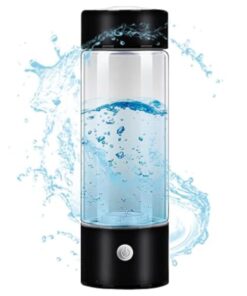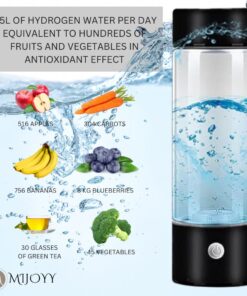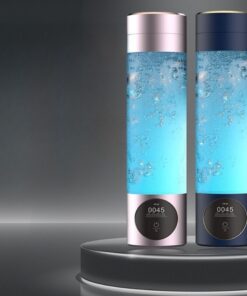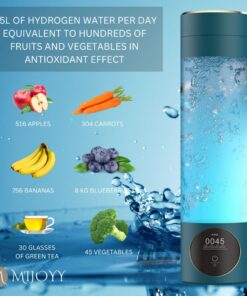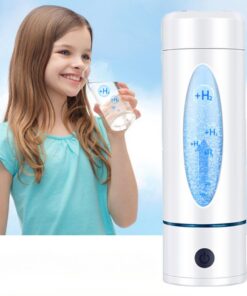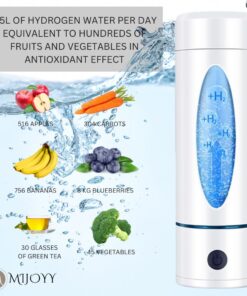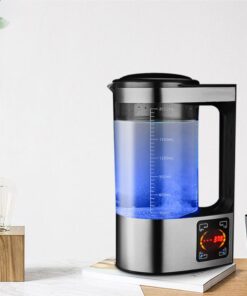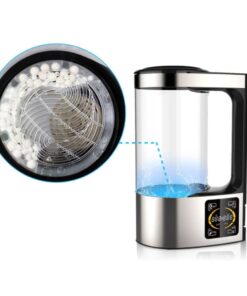Drinking Water
Is Drinking 8 Glasses of Water Everyday Really Necessary? Debunking the Myths
For decades, the advice to drink eight 8-ounce glasses of water per day has been a cornerstone of health recommendations. This rule, sometimes referred to as the “8×8 rule,” is well known and simple to follow. But now that we have a better understanding of hydration and personal requirements, it’s time to examine whether this one size fits all strategy is actually required for everyone.
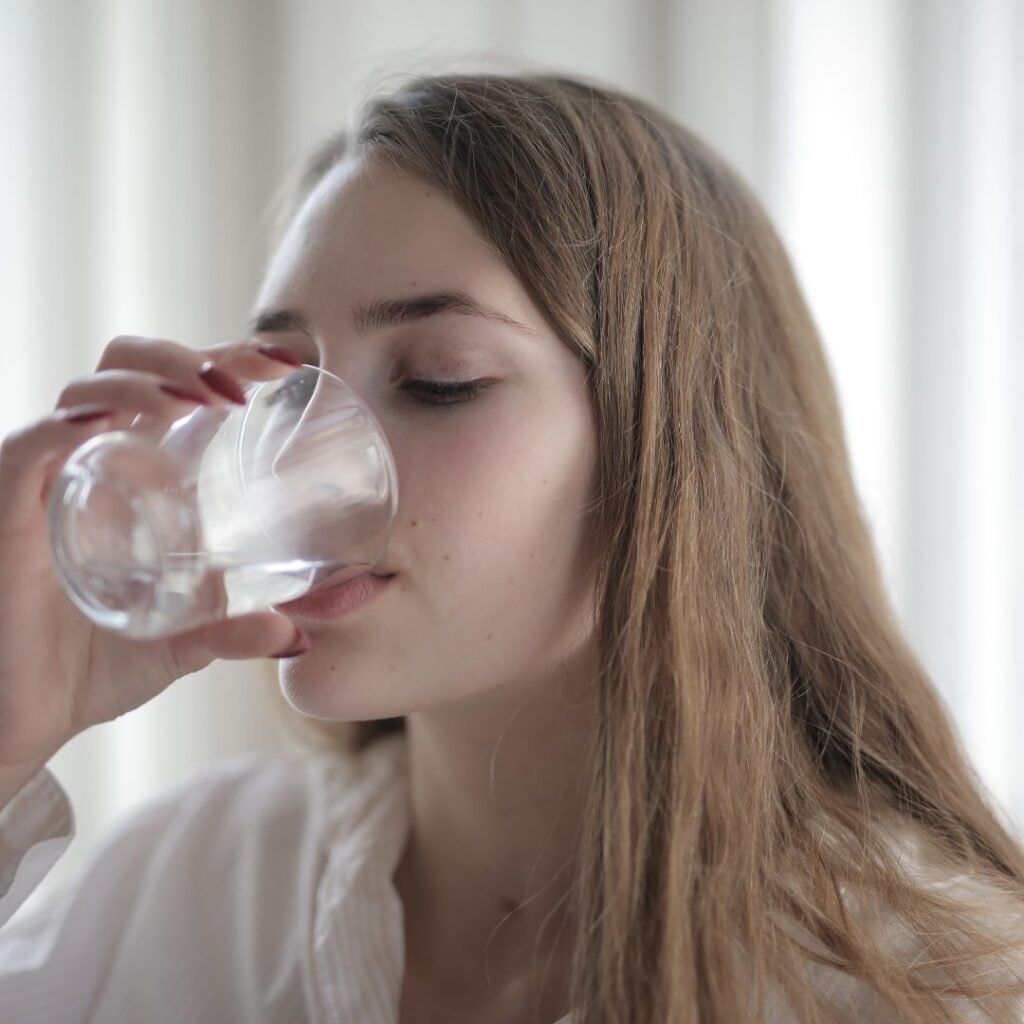
The Importance of Drinking Water
Before we dive into debunking myths, let’s first establish why drinking water is crucial for our health. Water makes up about 60% of the human body and plays a vital role in numerous bodily functions:
- Controlling body temperature
- Joint lubrication
- Providing oxygen to the body
- Making mucus and saliva
- Protecting the brain, spinal cord and other delicate areas with cushions
- Eliminating waste through bowel movements, sweating and urine
Maintaining these processes and general health requires drinking enough water. Even mild dehydration can cause headaches, exhaustion, a decline in cognitive function and physical impairments.
The Origin of the 8×8 Rule
There is no clear scientific basis for the well-known advice to consume eight 8-ounce glasses of water every day. According to one theory, it might have been calculated using the ratio of one milliliter of water to one calorie of food consumed. This would correspond to roughly 2 liters or 64 ounces of water for a diet of 2,000 calories, conveniently meeting the 8×8 rule.
However, recent research indicates that this broad recommendation may not be appropriate for everyone. Individual water needs can vary significantly based on various factors, making a one-size-fits-all approach potentially inadequate.

Current Recommendations for Water Intake
Modern health authorities have moved away from the rigid 8×8 rule, recognizing the need for more personalized hydration guidelines. The U.S. National Academies of Sciences, Engineering and Medicine now recommends:
- For men: About 15.5 cups (3.7 liters) of fluids per day
- For women: About 11.5 cups (2.7 liters) of fluids per day
It’s important to note that these recommendations include fluids from all sources, not just plain water. Foods and other beverages also contribute to our daily fluid intake.
Factors Influencing Water Needs
Several factors can affect an individual’s water requirements, making it essential to consider personal circumstances when determining optimal hydration levels:
- Physical Activity: Increased sweating during exercise necessitates higher fluid intake to replace lost water.
- Climate: Hot or humid weather can lead to increased perspiration and fluid loss, requiring more water consumption.
- Altitude: Higher altitudes can accelerate fluid loss through increased urination and more rapid breathing.
- Diet: Consuming foods high in salt or protein may increase your need for water.
- Health Conditions: Certain medical conditions, such as fever, diarrhea, or vomiting, can rapidly deplete the body’s water reserves.
- Pregnancy and Breastfeeding: Women who are pregnant or breastfeeding typically need additional fluids to stay properly hydrated.
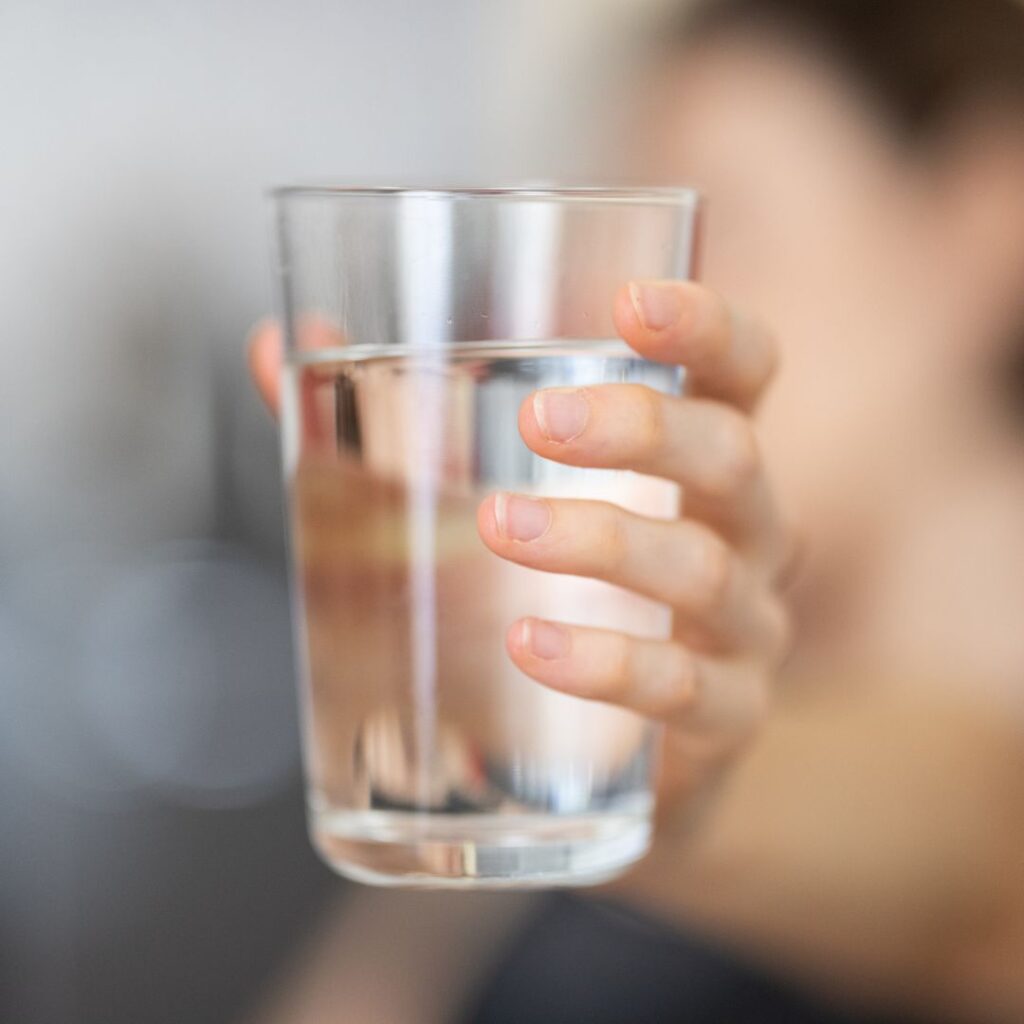
Benefits of Drinking Water
Understanding the benefits of staying hydrated can motivate you to drink enough water. Here are some key advantages:
✅Maximizes Physical Performance
✅Supports Cognitive Function
✅Aids in Weight Management
✅Prevents Headaches
✅Supports Digestive Health
✅Maintains Kidney Function
Maximizes Physical Performance
Proper hydration is crucial for athletes and those engaging in physical activities. Even mild dehydration can lead to reduced endurance, increased fatigue, and decreased motivation. Drinking water helps maintain blood volume, regulate body temperature and reduce the oxidative stress that occurs during high-intensity exercise.
Supports Cognitive Function
Your brain is strongly influenced by your hydration status. Studies have shown that mild dehydration (1-3% of body weight) can impair many aspects of brain function, including mood, concentration and working memory. Staying hydrated helps you stay alert, think clearly and maintain a positive mood.
Aids in Weight Management
Drinking water can support weight loss efforts in several ways. Water has no calories, making it an excellent substitute for high-calorie beverages. Additionally, drinking water before meals can increase feelings of fullness, potentially reducing calorie intake. Some studies suggest that increasing water intake can slightly boost metabolism, helping burn more calories throughout the day.
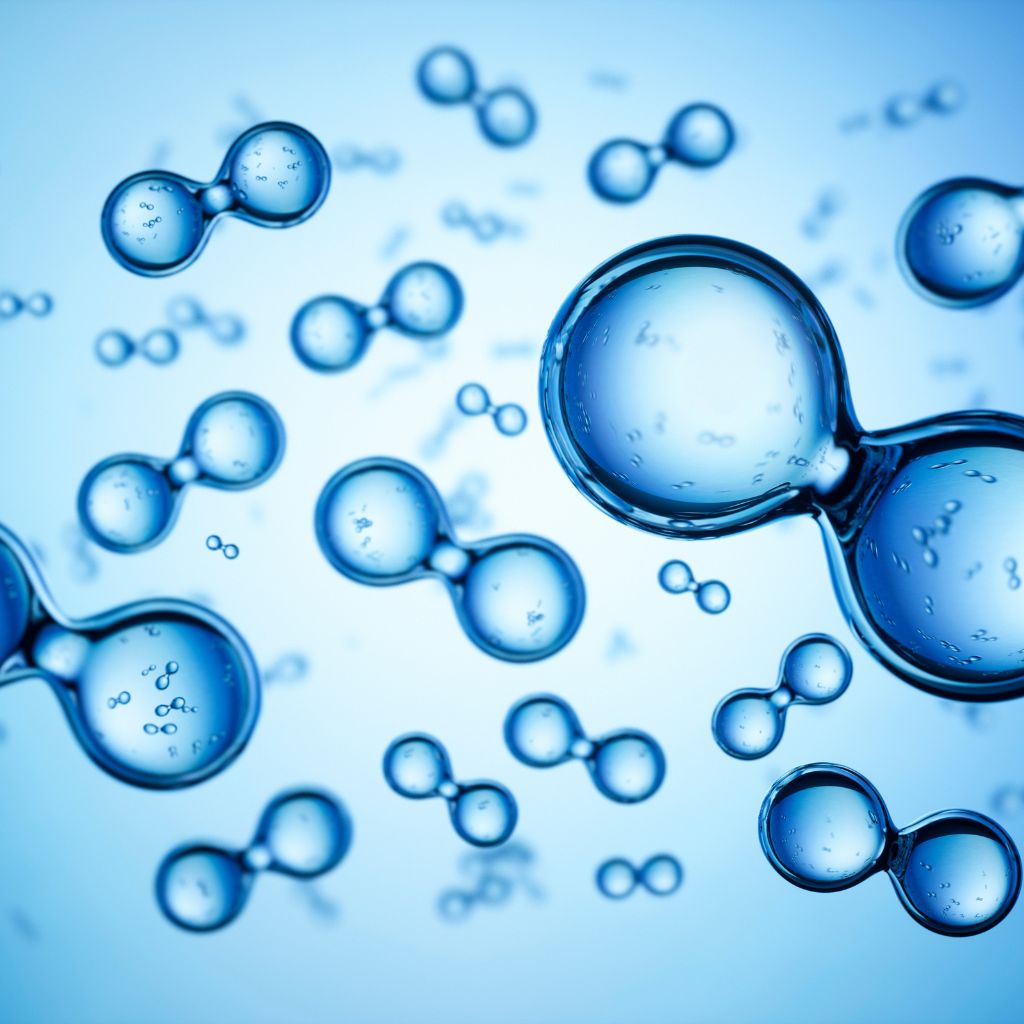
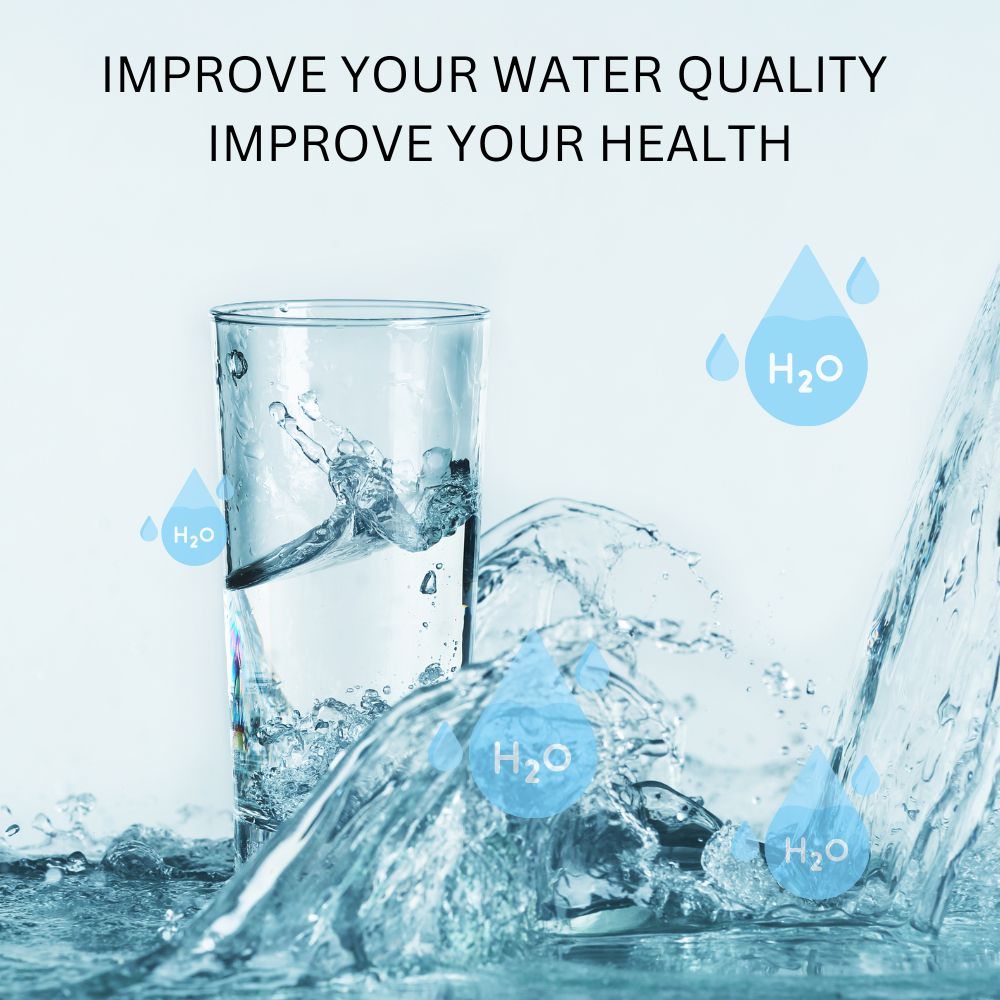
Prevents Headaches
Dehydration is a common trigger for headaches and migraines. Drinking enough water may help reduce the frequency and intensity of headaches in some individuals.
Supports Digestive Health
Adequate hydration is essential for proper digestive function. Water helps break down food, allowing your body to absorb nutrients more effectively. It also helps prevent constipation by softening stools and promoting regular bowel movements.
Maintains Kidney Function
Your kidneys play a crucial role in filtering waste from your blood. Sufficient water intake helps your kidneys work more efficiently and may reduce the risk of kidney stones. When you’re well-hydrated, your urine should be pale yellow and odorless.
Start Drinking water to feel the benefits
Debunking Common Myths
Now that we’ve established the importance of hydration let’s address some common myths surrounding water consumption:
Myth 1: Everyone needs to drink 8 glasses of water per day
Reality: While the 8×8 rule is easy to remember, it’s not based on solid scientific evidence. Individual water needs vary based on factors like age, sex, activity level, climate and overall health. Some people may need more than 8 glasses, while others may need less.
Myth 2: You can only get hydrated from plain water
Reality: While water is an excellent source of hydration, other beverages and water-rich foods also contribute to your daily fluid intake. Fruits, vegetables, soups and beverages like tea and coffee all count towards your hydration goals.
Myth 3: Drinking water at night is bad for you
Reality: Drinking water at night is not inherently harmful. However, consuming large amounts of fluids close to bedtime may disrupt sleep due to increased nighttime urination. If you’re thirsty at night, it’s fine to drink water, but try to moderate your intake in the hours leading up to bedtime.
Myth 4: You should drink water even when you’re not thirsty
Reality: Thirst is generally a reliable indicator of when your body needs fluids. However, in some cases, such as during intense exercise or in hot weather, you may need to drink water before feeling thirsty to prevent dehydration.
Myth 5: Drinking more water is always better
Reality: While staying hydrated is important, over drinking water can lead to a condition called hyponatremia, where the sodium levels in your blood become diluted. This is rare but can be dangerous, especially for endurance athletes who drink excessive amounts of water without replacing electrolytes.
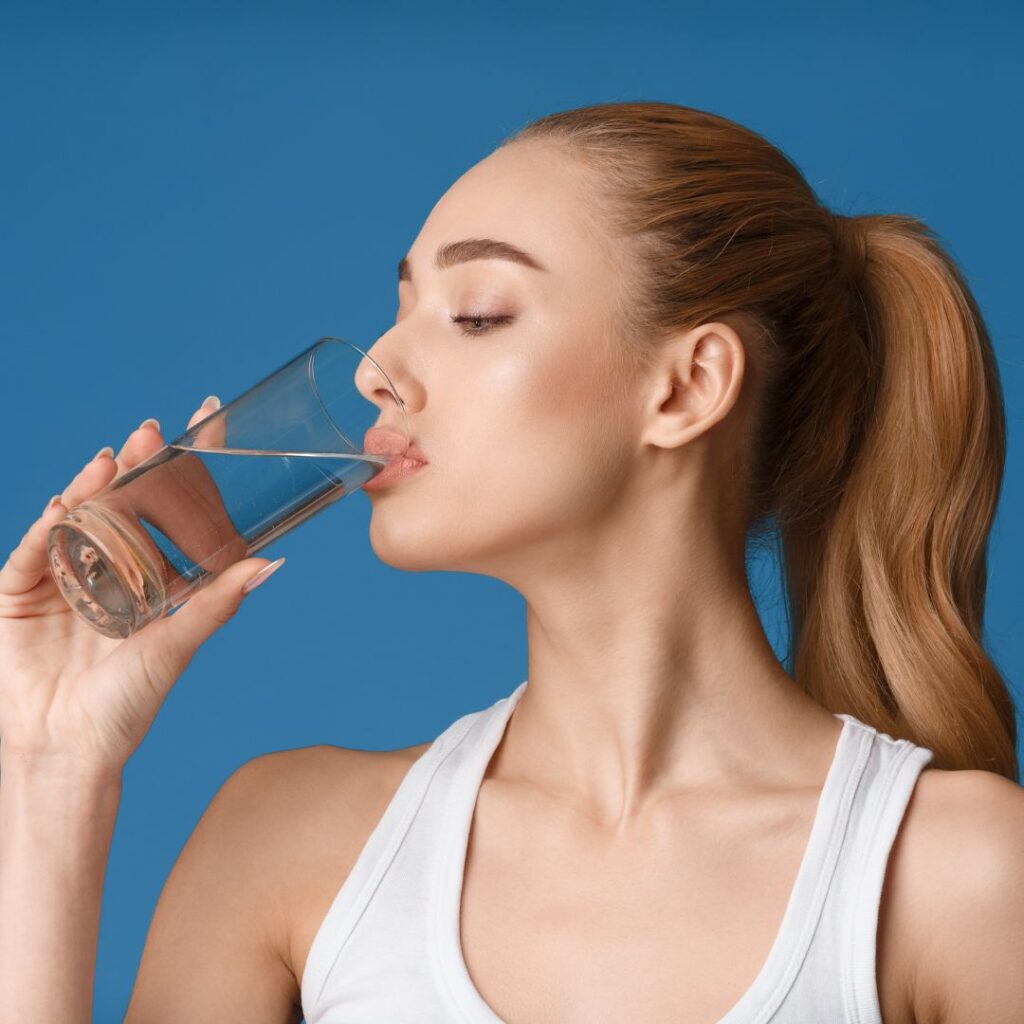
Practical Tips to Drink More Water
If you’re looking to increase your water intake, here are some practical strategies:
- Keep a reusable water bottle with you: Having water close at hand can motivate you to consume more throughout the day.
- Set reminders: Use smartphone apps or alarms to remind you to drink water regularly.
- Have a glass of water with every meal: Develop the habit of drinking water with every meal.
- Flavor your water: If you find plain water boring, try infusing it with fruits, herbs, or cucumber for added flavor.
- Consume foods high in water: Include foods high in water in your diet, such as fruits and vegetables.
- Drink water in the morning: Start your day with a glass of water to help rehydrate after sleep.
- Replace sugary drinks: To cut calories and increase hydration, replace high-calorie drinks with water.
Listening to Your Body
While guidelines can be helpful, the most important thing is to listen to your body’s signals. Here are some signs that you’re well-hydrated:
- Pale or clear urine
- Regular urination (about 4-10 times per day)
- Feeling energetic and alert
- Skin that bounces back quickly when pinched
If you experience dark urine, infrequent urination, fatigue, or dry skin, you may need to increase your fluid intake.
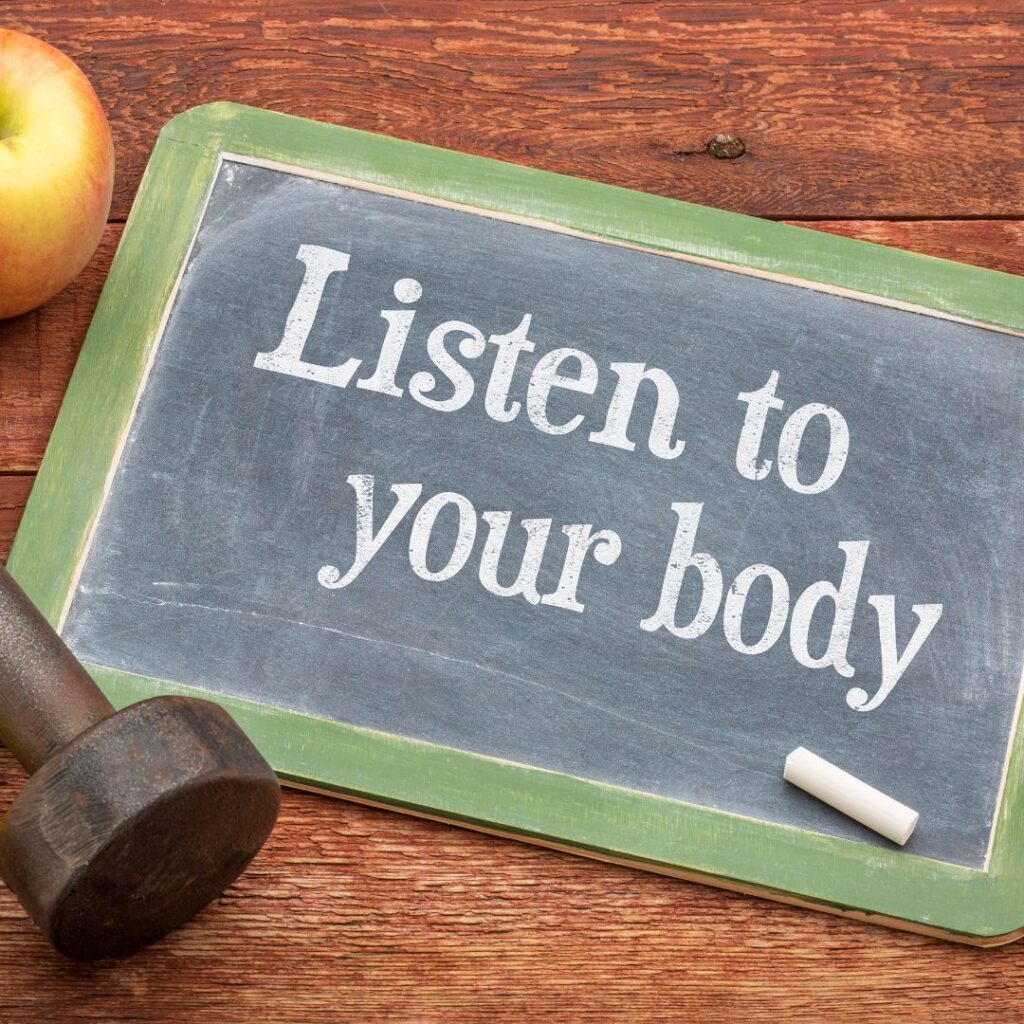

The Importance of Clean Drinking Water
To stay healthy, one must have access to clean drinking water. Because of stringent testing and treatment procedures, tap water is safe to drink in many parts of the world. A water filter or bottled water from reliable sources are better options, though, if you’re worried about the quality of your tap water.
The Role of Water in Overall Health
Drinking water is just one aspect of maintaining good health. It’s important to consider your overall lifestyle, including diet, exercise and sleep habits. Here are some ways that proper hydration contributes to overall health:
- Skin Health: Adequate hydration helps maintain skin elasticity and can contribute to a healthy, glowing complexion.
- Joint Health: Water acts as a lubricant for your joints, helping to reduce friction and maintain flexibility.
- Temperature Regulation: Proper hydration is crucial for your body’s ability to regulate temperature through sweating.
- Nutrient Transport: Water helps transport nutrients throughout your body, ensuring that your cells get the fuel they need.
- Waste Removal: Adequate hydration supports your body’s natural detoxification processes through urination, sweating and bowel movements.
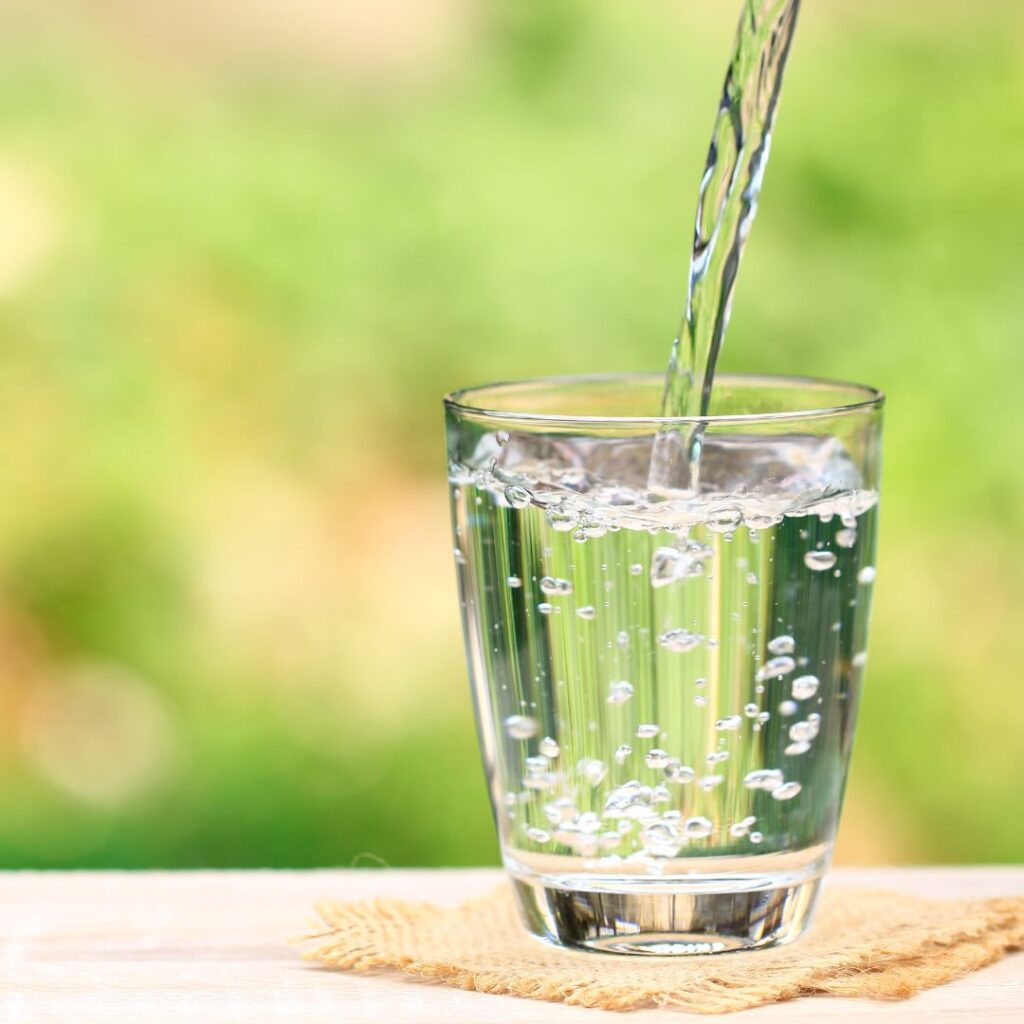
Conclusion
While the 8×8 rule has been a popular guideline for decades, current research suggests that it may not be necessary or appropriate for everyone. Individual water needs can vary significantly based on factors such as age, gender, activity level, climate, and overall health. The main conclusion is that while maintaining proper hydration is essential for general health and wellbeing, each person may require a different amount of water. Instead of following the 8×8 rule to the letter, it’s better to:
- Listen to your body’s thirst signals
- Pay attention to the color of your urine
- Consider your activity level and environment
- Include a variety of fluids and water-rich foods in your diet
Remember, while plain water is an excellent choice for hydration, other beverages and foods also contribute to your daily fluid intake. The goal is to maintain a balance that keeps your body functioning optimally. By paying attention to your body’s needs and taking into account the different aspects that affect hydration, you can make sure that you’re getting the appropriate amount of fluids for your particular circumstances. Regardless of your preference for flavored water, plain water, or other hydrating drinks, staying consistently hydrated is crucial for your general health and wellbeing.

